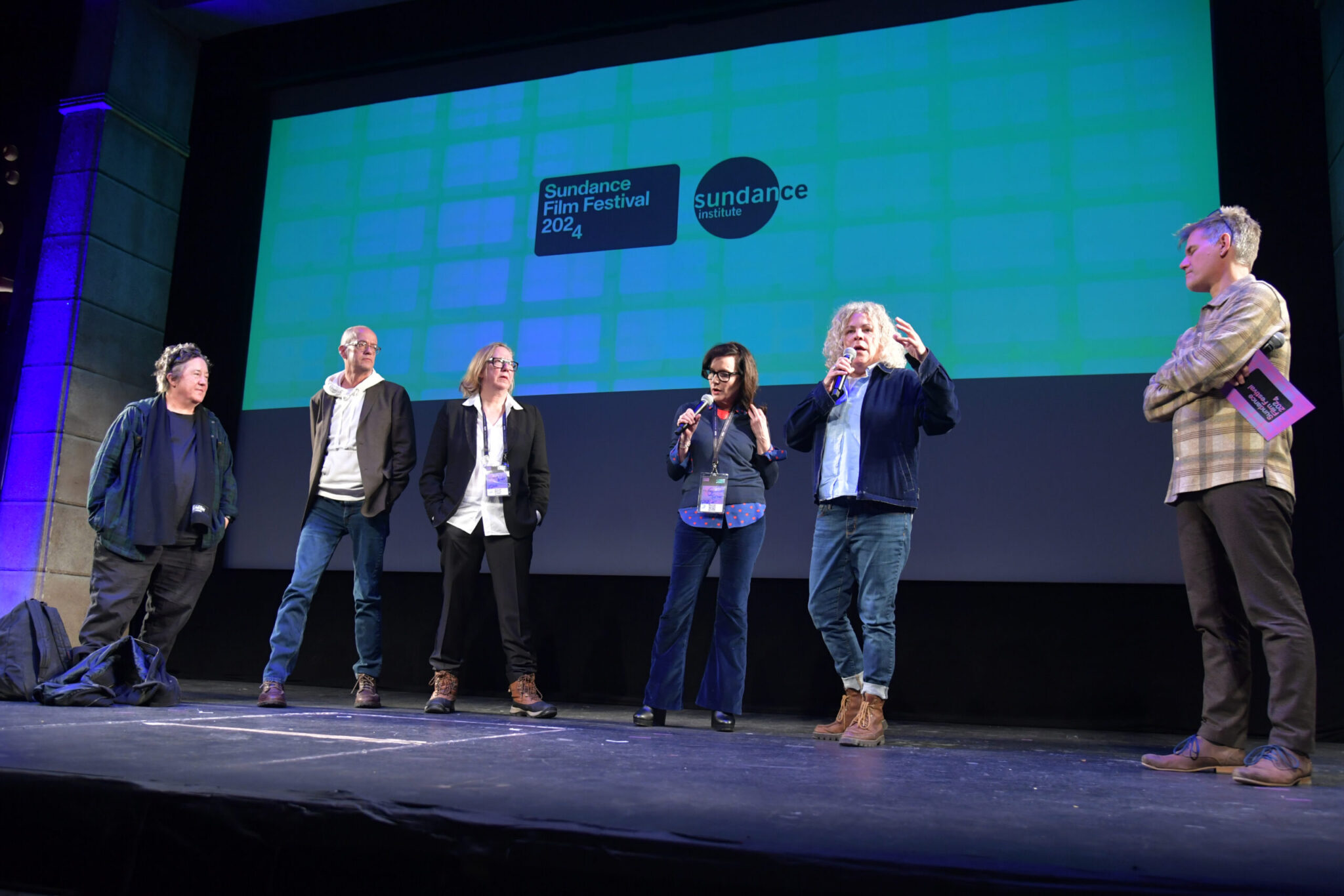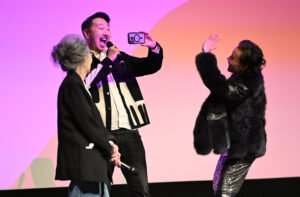PARK CITY, UTAH – JANUARY 24: (L–R) Christine Vachon, Tom Kalin, V.S. Brodie, Guinevere Turner, Rose Troche, and John Nein attend the 2024 Sundance Film Festival “Go Fish” screening at the Egyptian Theatre on January 24, 2024, in Park City, Utah. (Photo by Stephen Lovekin/Shutterstock for Sundance Film Festival)
By Lucy Spicer
On January 24, 2024, Sundance Film Festival senior programmer John Nein takes the stage at the Egyptian Theatre in Park City, Utah. He, along with everyone in the audience, is here to revisit an iconic film that was essential to the new queer cinema movement in the early 1990s.
That film is the 1994 lesbian classic Go Fish. “The film itself exemplifies everything that was exciting about indie film in the early ’90s. Despite the infusion of energy and exposure for queer cinema, Go Fish was the scrappy, lesbian, awesome film that the indie movement was waiting for,” says Nein. And now, 30 years later, a digitally restored version of the film is screening as part of the 2024 Sundance Film Festival’s 40th Edition Celebration Screenings and Events.
The 4K restoration not only improves the picture quality — it also expands the frame, allowing the audience to see the film like never before. “After 50, who doesn’t want a facelift?” says director and co-writer Rose Troche about the restoration. “That’s all I have to say about that. And I really appreciate you guys giving it a big facelift.”
But the plot is the same funny, montage-filled, near-episodic story that we all remember, with characters that appear colorful even on black-and-white film. In 1990s Chicago, Max (co-writer Guinevere Turner) is waiting for her dream girl to show up. Max’s roommate, Kia (T. Wendy McMillan), thinks Ely (V.S. Brodie) might be a good candidate. Max disagrees. But with some gentle nudging (or scheming, depending on whom you ask) from their friend group, the two may find love after all.
Troche, Turner, and Brodie stick around for a post-screening Q&A, as well as executive producers Christine Vachon and Tom Kalin. Vachon recalls how the film felt groundbreaking even in the growing queer cinema canon.

“I was starting to realize with both Poison and Swoon how hungry our community was,” says Vachon. “And already, after just two movies, I was being attacked by some women in our community: ‘You only make gay men’s movies!’ Give me a minute! I’m just starting out here,” she explains to a chuckling audience. “And when [Tom Kalin and I] saw that [Go Fish] footage, I think we both were like, OK. This has a charm and a vibrance about it that is really not like anything we’d seen before, you know?”
Troche and Turner wrote the film — to which they had to continually add footage to meet the feature-length requirement — because they wanted to see their community reflected on screen. They had no idea how important it would become.
“Ever since we gave birth to this, all of us, we could not have predicted where it would go,” says Troche. “Tom, I remember you saying this thing. We were in the AIDS movement. People were dying, our friends were dying, and I remember you saying this movie was like the antidote to all the hopelessness that we were experiencing in the queer community at that time.”
Three decades later, this hopeful, joyful celebration of friendship and love is surely still a balm. “It is always difficult to revisit something that you made as your first feature,” says Troche. “I think during this process, I really fell in love with this movie again. I never had fallen out of love, but I just came to appreciate its separate self. It’s been 30 years. It’s not mine anymore, really, it’s yours.”
To see more of the magic from the 2024 Festival, click here.







